Mary Rykov’s some conditions apply invites readers into poems that observe, question, laugh and weep, wielding language that is variously gentle as “thick and rich / shaken, stirred / and crispy.” Musical transformation reverberates throughout themes of displacement, resilience and love to contradict auto-click culture forced upon us by the pressure of instant gratification in 24/7 connection. Mindful that weeds are wildflowers in the wrong place, the poet nurtures and celebrates tenacity everywhere it blooms.
“Mary Rykov’s is an exuberant, brave voice that ranges from acerbic wit to tender grief. She has an ear alive to the playfulness inherent in our language, and an eye hungry for vivid detail. The poems in some conditions apply range in their concerns from family and identity to pain and the healthcare system, but throughout there is the consistent thread of Rykov’s generous spirit. You’ll be glad to get to know it in this book.”
—Adam Sol, author of How a Poem Moves
“As music therapist, researcher, and educator, Mary Rykov wears many hats in her first collection. The most personal poems work best, as Rykov avoids the trap of self-indulgence. Rykov allows “music to force its way out,” as in the line from “happy hour moon over miami”: slurping the oyster bare—the one only love can shuck and toss back to the sea.”
—Ron Charach, author of Prosopagnosia
“At times tender and playful, Mary Rykov weaves threads that delight, surprise, and perplex. Much like music therapy, these poems transform. They demand experiential engagement, invite curiosity, and reward the reader with sunlit sparkles and perpetual change in fluid motion.”
—Claire Molyneux, editor of Tales from the Music Therapy Room: Creative Connections
“With words clear-sighted, courageous and precise, pain, death, and beauty coexist here in the honesty and skill of Mary Rykov’s art. To quote one of her many potent images, she is searching the butterfly for the pupa’s soul.”
—Merlin Homer, Artist
Puerto Rican-Canadian María Helena Auerbach Rykov (Mary Rykov) holds a PhD in Adult Education (OISE/UT 2006) and an MA in Music Therapy (NYU 1995). Her poems and prose appear in numerous print and web venues. Mary serves as proofreader on the Pulp Literature masthead and freelances as a writing mentor and editor in multiple genres. When not playing with words or music, she is a voracious knitter and ardent dandelion enthusiast, cyclist, and foodie. maryrykov.com.
Cadaver Number 929-75
Tension simmers
this music I speak
Pregnant with the world,
babies pop from me
& as I spin their cradles
from my own gut-string
my mind splits open
like a robin’s egg cracked
but still singing
Enslaved by feathers and blood
on my windowsill, holy water wells
like stigmata in my palms Lonely as god
before the invention of colour, I leave
only land behind after metaphors fail
The mountain presence rejects nothing
I bumslide down these mountains
& splat into the sea
already so full with bones and miracles,
my closed-quartz throat
a bloodstone-dark jewel of history
Swirling in the cold prick of bubbles
on my underbelly, I sink
reach centre & roil
in its wake
Only my lover sees me
with human ? eyes,
eyes that stain
the sky bloody with Betelgeuse
I approach this lover so rough with need
that by day’s end his empty scrotum sags,
but first we fall thrashing
like fish in saltchuck
The firemen will say
.they must have smoked in bed
just for godsake don’t step there
where slugs ooze viscid mess
When my film splinters white
I do not wake because
I am already married
to a different dangerous man
who rattles the stones
in my skull’s cavity
& scrapes my knees
on ice-cleaved ground
A husband whose hammer head
indents my occipital bone
as he shatters me
& splatters my blood
No care can efface this
Janus-pain love
that barks while the sun stands still
in its empty ring of frozen trumpets
& love, love turns to milk stone
Pulled lifeless from Furry Creek,they identify Cadaver Number 929-75
and Mrs Pat Lowther
as one and the same
How dare they doubt me,
doubt I could be this husk
stories
Thanks for the stories whose plot twists
jump out
from behind potted palms
in hotel lobbies
Thanks for the stories whose subtexts
lie about their age and weight,
wear the wrong shade of lipstick
and pad their bras with old clichés
Thanks for the story protagonists
who text while driving
and don’t believe
in turn signals
Thanks for the supporting characters
who ramble through frozen food aisles
choosing too much sodium, sugar, and transfats
while talking with their mouths full
Thanks for the genre stories
who leave rings around the bathtub
and never replace
empty toilet paper rolls
Thanks for the first-person narrators
who arrive too early,
stay too late
and tweet too much
Thanks for the second-person narrators
who drink indiscriminately
before noon—
you know who you are
Thanks for the third-person narrators
who are spooked by climate change
and can’t be trusted
with nuclear codes
Thanks for all the storiesthese stories tell

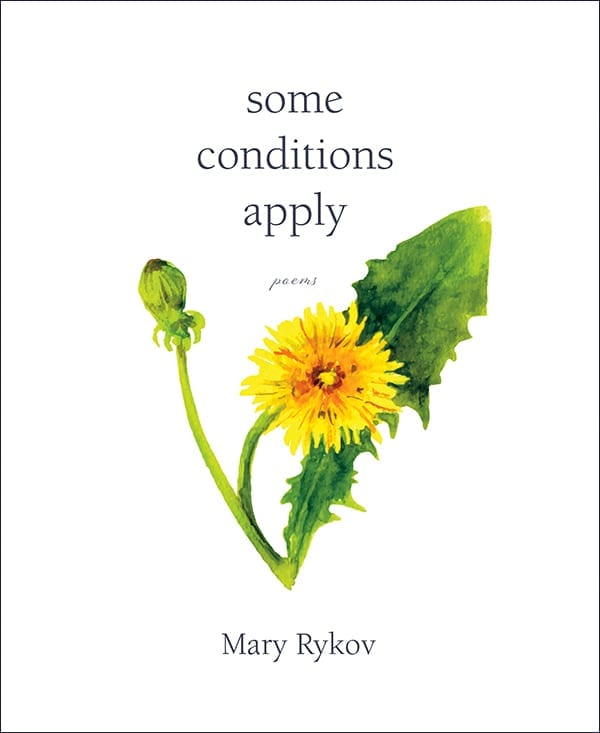

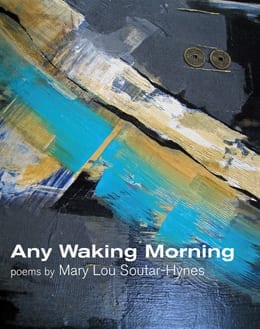
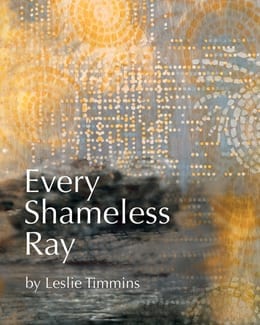

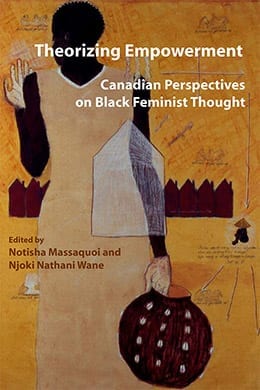

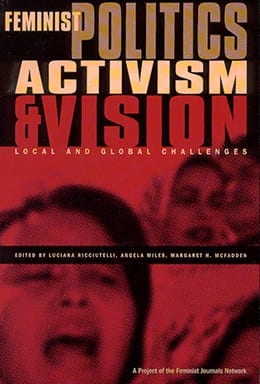
Inanna Admin –
some conditions apply by Mary Rykov
reviewed by Bill Arnott
The Miramichi Reader – June 18, 2020
https://miramichireader.ca/2020/06/some-conditions-apply-by-mary-rykov/
When I open a book from Inanna I know I have something worthwhile. Strong, independent feminist work, a mosaic of talent and voice. Mary Rykov’s some conditions apply came to me electronically, during isolation. At times a mobile device, laptop or reader, can lack experiential feel, bound paper enhancing a book’s tone. Not so in this case. Stylized structure and layout still speak, uniquely tactile through my screen’s soft glow, dimmed a little, enlarged a lot (I’m still awaiting new glasses). Despite a predominantly quarantined existence, I find myself outdoors, virtually, with Rykov’s post-shooting sonnet:
Sparrows hop / the sultry pool deck / scrounging snack crumbs / while squeals and screams / belly laughs and belly flops / flips and plops / punctuate / splashes // Crickets chirp / and birds beg / in flux, in fright, / and in the all / and in the nothing / that changes
Exuberance in onomatopoeic alliteration, I’m tensed, anticipating the inevitable dowsing of a poolside splash. But the season of swimming, songbirds, and water toys refuses to linger, referenced as inevitable change. With that shift, summer doesn’t notice:
Cicadas complain overhead / Leaves crunch underfoot // Conkers break open / where they fall // Light dies early now / with chill of evening air // Summer blinks / and flees
Fled, but not forgotten. Recalling it all with a satisfied sigh, I find comfort as we share a song – the poetry of music with inherent national pride. This is singing Cohen:
We sang your honey / when our youth / was new We lean // this way / forever, / travel blind
Travelling blind. How it must, or ought to ensue. Departures and destinations – planned perhaps, but invariably variable. Before settling in with Rykov’s work, I made a disciplined point of first finishing a writing exercise, a weekly endeavour derived from a prompt. Which made me smile as I came to this, realizing we writers are all alike. This is our author’s writing prompt:
Using freshly moulted feathers / from fledgling sparrows / write your name / as it appeared / in yesterday’s / obituary // Let them squawk, / don’t stop // Keep both hands moving / across the sky
Nodding again to nature, time, the creativity of melding media – inward and out. Mary Rykov’s some conditions apply is a beautiful collection of work, one to be savoured, wherever you are, and by whatever means that you read. While time, at this time, is seemingly slowed, still we enjoy a seasonal shift – literal and softly allegorical, from the sounds of summer, avian transition and pulse of a seasonless song, these are creatures captured humanely, with an expiry date of never.
Inanna Admin –
some conditions apply by Mary Rykov
reviewed by Claire Molyneux
New Zealand Journal of Music Therapy 18, 167-17- December 2020
http://maryrykov.com/2020/12/reviewed-some-conditions-apply/
some conditions apply is Mary Rykov’s first published collection of poetry, but music therapists may already be familiar with her writing. The book is published by Inanna Publications and Education, an independent feminist press in Canada, dedicated to feminist voices that provoke discussion and speak to the diverse lives of women.
Puerto Rican-Canadian María Helena Auerbach Rykov, practised as a music therapist for 35 years with individuals from birth to death, and is one of the voices that urged music therapists to strive for poetry. She told us: “We need poetic method to bring us closer to knowing and communicating the essence of being, particularly for instances of nonverbal, embodied experience such as music and music therapy” (Rykov, 2011). Her doctoral research was an arts-informed thesis, titled Music at a Time Like This(Rykov, 2006), and explored the meaning of music therapy support groups for cancer patients. music at a time like this is also the title of a song collection that Mary describes as “intended for ‘times like these’ when the sea is rough, the road bumpy, and the spaces between the rocks and hard places grow tight” (Rykov, n.d.). A fascination with the ways in which people story and re-story their lives, whether by choice or through necessity, is a theme that runs through Rykov’s writing. She strives to place the individual voice at the centre of her music therapy writing, disrupting the “traditional discursive-scholarly format of journal writing to privilege better the participants’ accounts and communicate these experientially” (Rykov, 2008, p.190).
In this collection of poems, we are brought closer to Rykov’s voice. Threads of music and music therapy practice weave alongside poems relating to culture and identity. some conditions apply traverses themes from the domestic to the existential, and presents them with beauty, rawness and poignancy. Rykov writes in response to what she experiences; what she sees, hears and feels. It is this curiosity that opens up a playful space for language, and results in poems that are intended to be spoken or sung.
Some poems such as “this song” and “I am” have an easy rhythm evocative of the Scottish and English ballads after which they are crafted. One of my favourite images in the collection is held in a verse from “this song”:
I take the threads
of a young spider’s web
and make you a cloak
to hold you from cold
(p.39)
For me, the image of the cloak will always relate to working in palliative care and the origin of the word palliate, meaning to cloak. The juxtaposition of the delicate young spider’s web, combined with a magic spell to shield the poem’s subject from harm, is evocative of the care and compassion I encountered in palliative care work. Many of the poems touch the subject of death and dying, sometimes gently as in “cottonwood” and “music while dying”. At other times, the observations of ageing and end of life have a piercing reality as in “Bubba” and “How to have a good death in Canada circa 2020”. “Case Closed”, which concerns the death of a patient, reminds me of the music therapist’s task to hold boundaries and manage the emotional intensity of working with others.
Rykov also writes about culture and identity. Reading “roads to refuge”, I was reminded of Bernice Rubens’ book Brothers (1983) and the theme of continual exile of Jews to other lands, remembering their dead:
Help us: we need,
we need comfort –
our safety stolen
by this past we carry
parched and blistered,
stopping only
to pile the cairns
for our dead
(p.72)
Autobiographical poems such as “puertorriqueña”and “bless with promise each sunrise”speak of both individual and collective experience. The references to Puerto Rico made me want to find out more about this archipelago, and I had a small smile when I encountered the coquí in this poem. I recalled the recording of this native tree frog played to me recently by a music therapy trainee from Puerto Rico, who was trying to explain how this sound had a unique influence on the ways that music is infused into Puerto Rican life. I could imagine the rich soundscape Rykov describes:
I will tell you in luscious color
how Yiddish and Spanish merge
in the ear as lullaby
while the surf drones
and the coquí sings
through thick air
warm like a blanket
(p.9)
Identity, remembrance and domestic life are present in other poems too: “it all starts at the kitchen table” and the affectionate “Apple Cake” evoke memories of family relationships. Those seeking a little more context may find it in Rykov’s essay Abyssinian Maid (2017). After reading it, I was struck by the powerful and evocative way in which Rykov blends personal experience with broader cultural discourse.
I cannot finish this review without mentioning the dandelion that is the subject of the poem “Taraxacum officinale” and graces the front cover of the book. Mary Rykov loves dandelions so much that she cultivates them as house plants so as to enjoy their bright yellow blooms throughout the year. She wonders if the reason she loves them is because they were the only flowers she was allowed to pick as a young child (Rykov, 2020). I too picked dandelions as a child, but for a very different purpose: they were good food for the rabbits and tortoises! Function and beauty are qualities found in Rykov’s poems, and we need both to be nourished.
Poetry for me serves many purposes: it can be a place of refuge, it brings delight and wonder, incites curiosity, takes me into my imagination and leads me to explore further. Some poems in this collection, I wanted to discuss with others in an effort to elucidate meaning and intention. Others, I was content to savour in my mouth and body, sitting with the questions, feelings and responses that rose in me. My experience of editing the collection Tales from the Music Therapy Room: Creative Connections(Molyneux, 2018) revealed the myriad ways New Zealand music therapists engaged with poetic method. Rykov’s book invites us to immerse ourselves further in poetry, and I encourage music therapists to allow themselves a little space and time to explore this collection that will resonate and inspire. Rykov can be heard reading from the book at the Pulp Literature Press Pandemic Reading Series (Pulp Literature Press, 2020) and at the replay of the online book launch (Inanna Publications, 2020).
References
Inanna Publications. (2020, June 18). Toronto Lit Up/Inannabook launch no. 2[Video]. https://www.crowdcast.io/e/toronto-lit-up-inanna-launch
Molyneux, C. (Ed). (2018). Tales from the music therapy room: Creative connections. Jessica Kingsley Publishers. (Original work published 2017)
Pulp Literature Press. (2020, May 8). Pulp Literature Press Pandemic Reading Series – Episode 7 [Video]. YouTube. https://www.youtube.com/watch?v=dW2p5uKfG-I
Rubens, B. (1983). Brothers. Hamish Hamilton.
Rykov, M.H. (n.d.). music at a time like this (CD). http://maryrykov.com/about/music-at-a-time-like-this
Rykov, M.H. (2006). Music at a time like this: Music therapy cancer support groups [Unpublished PhD thesis]. University of Toronto. http://hdl.handle.net/1807/4797
Rykov, M.H. (2008). Experiencing music therapy cancer support. Journal of Health Psychology 13(2), 190-200. https://doi.org/10.1177/1359105307086708
Rykov, M.H. (2011). Writing music therapy. Voices: A World Forum for Music Therapy, 11(1). https://doi.org/10.15845/voices.v11i1.288
Rykov, M.H.A., (2017). Abyssinian maid: How a stolen painting led to reckoning with a family legacy. Canadian Notes & Queries, 100, 33-36. http://maryrykov.com/wp-content/uploads/2020/04/CanadianNotesQueriesCNQ100-Fall2017-Rykov-AbyssinianMaid.pdf
Rykov, M.H. (2020, February 11). Dandelions? Blog – Mary H. Rykov. http://maryrykov.com/2020/02/dandelions